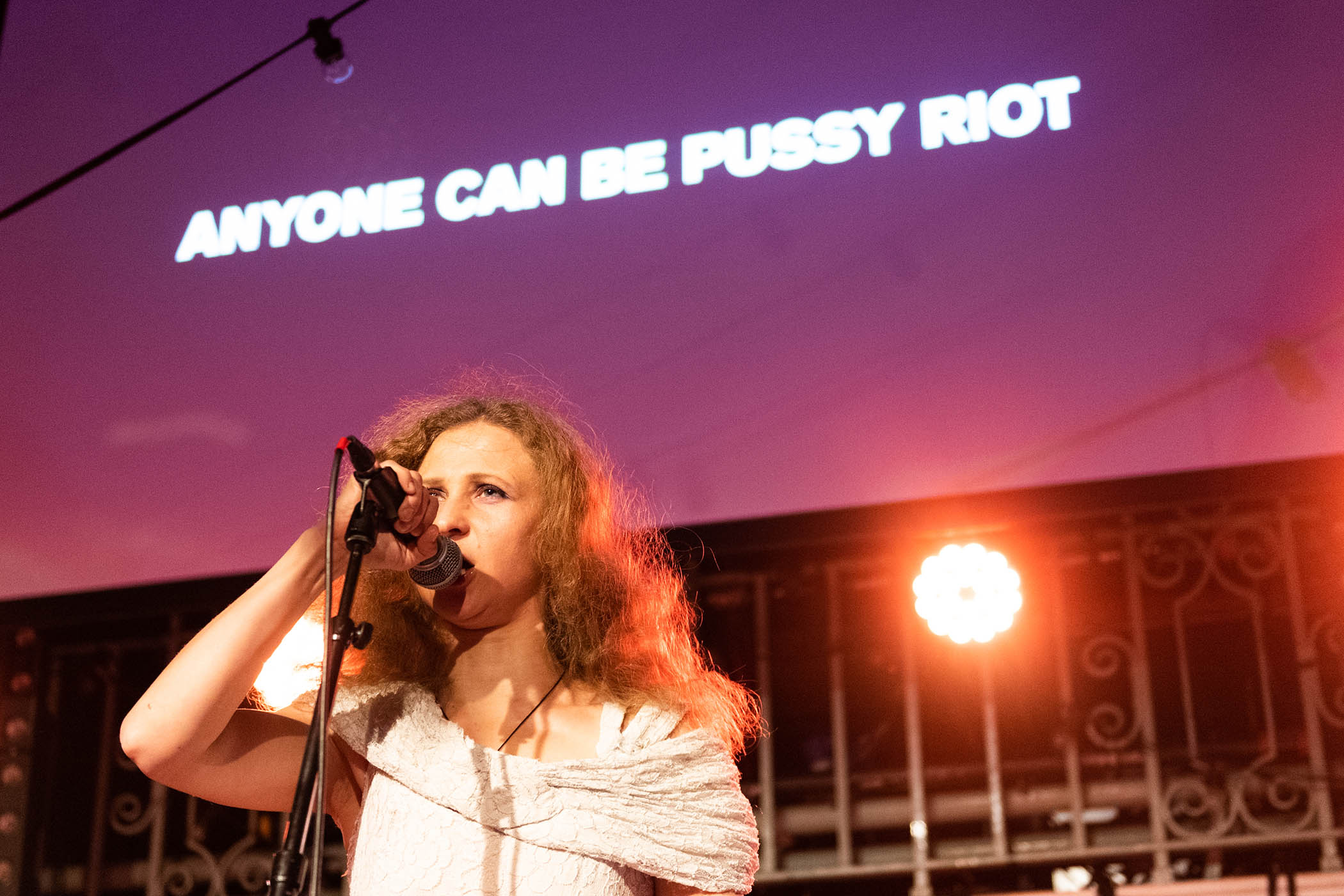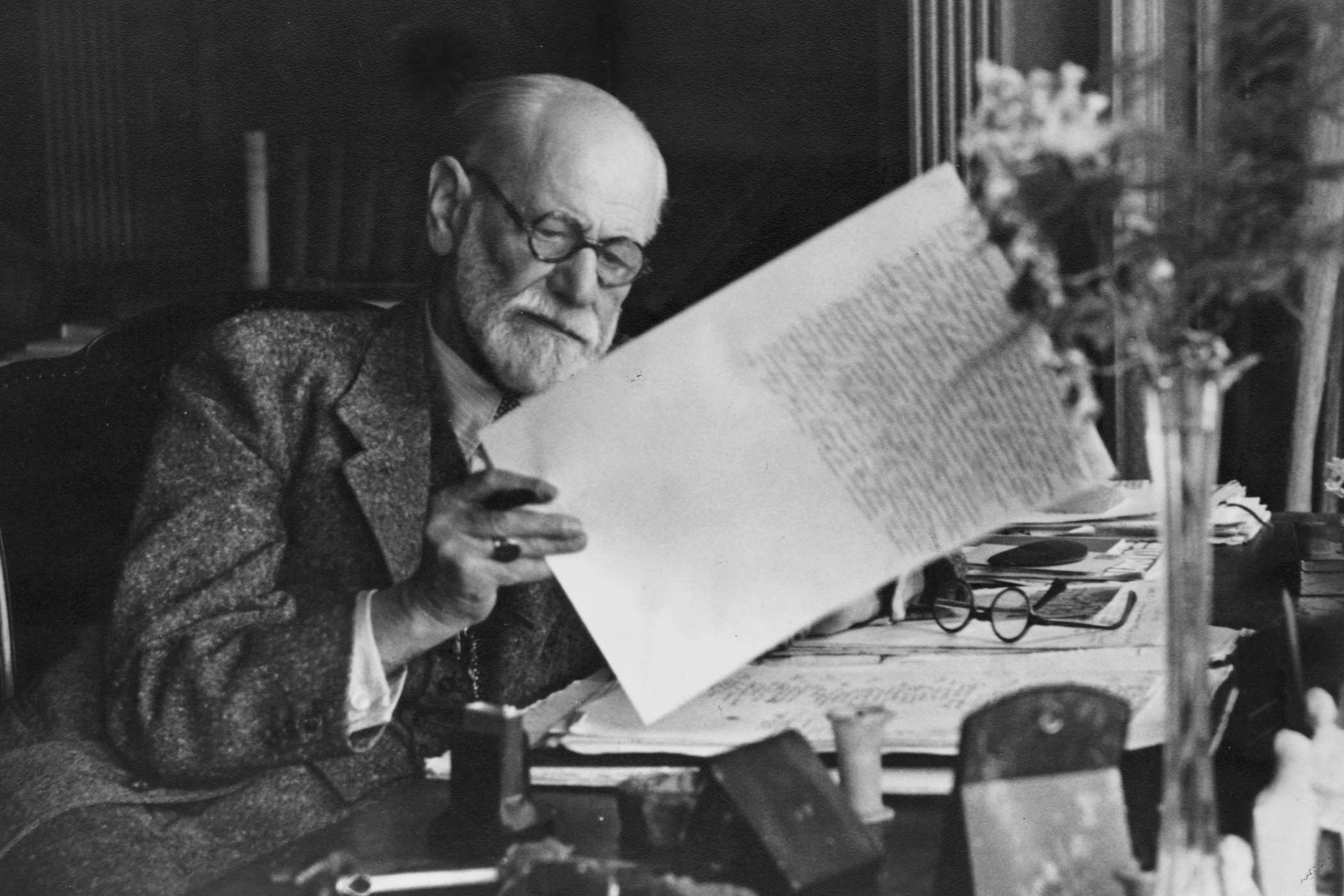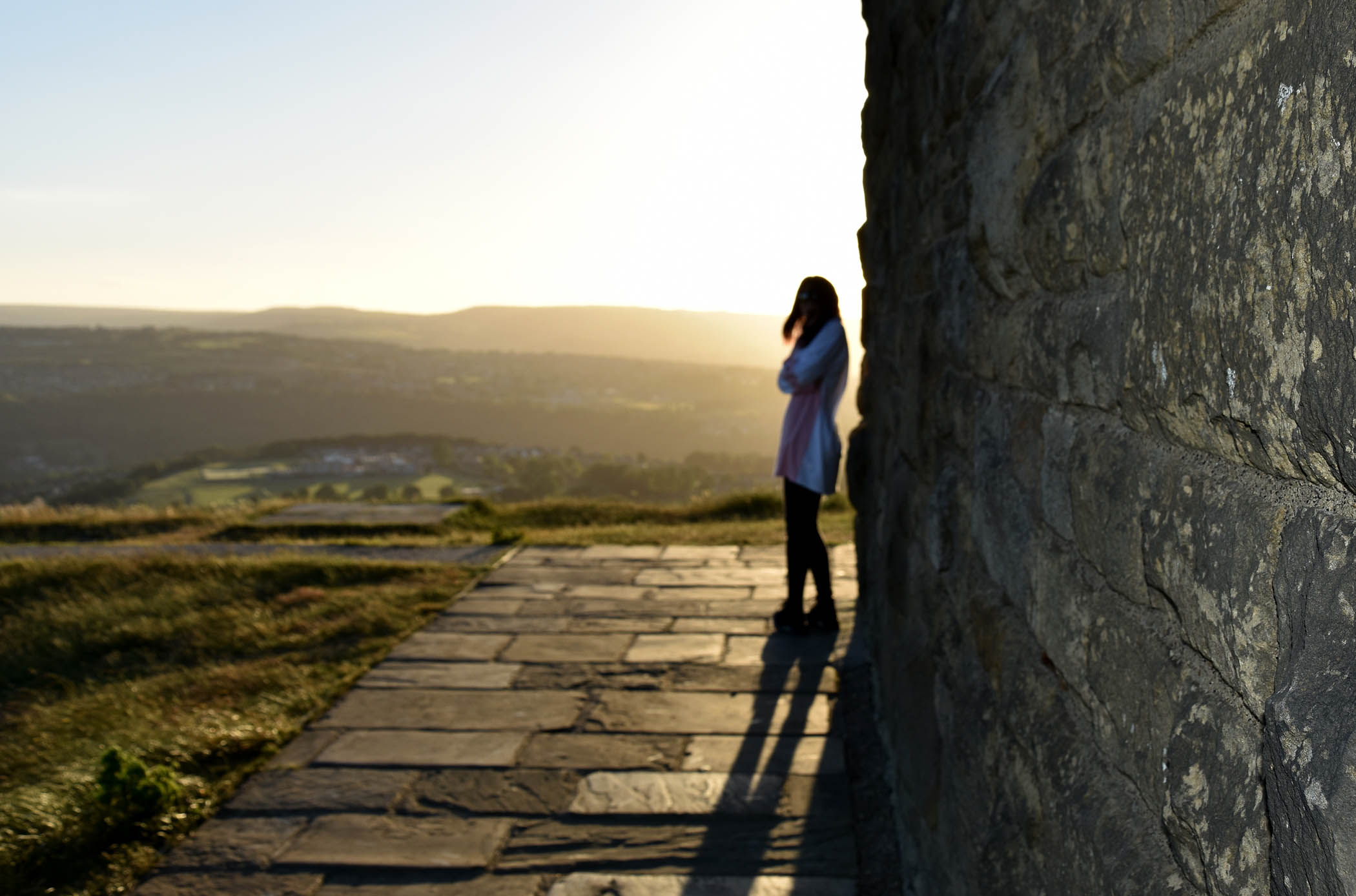In February 2012, Maria “Masha” Alyokhina was among the Pussy Riot members who performed their Punk Prayer (“Virgin Mary, Mother of God, banish Putin”) in Moscow’s Cathedral of Christ the Saviour. She was sentenced to two brutal years in a penal colony, leaving her five-year-old son behind. Alyokhina wrote a superb memoir of her incarceration, Riot Days, published in 2018. Now we have Political Girl: Life and Fate in Russia, which picks up events in 2014, following her release, and continues through to her escape from Russia to Iceland in 2022. This is the story of the dark turn that Russia took post-2012 – a story of raids, cells, courtrooms; the grind of protest and official reprimand punctured by bursts of sublimity and violence.
Formally, the book is billed as a collaboration with fellow Pussy Riot member Olga Borisova, but the voice is unmistakably Alyokhina’s: insistent, highly strung, relentless. We begin in Sochi, with the group protesting the Winter Olympics through small, photogenic acts while the state shadows their every move. Pussy Riot operate through regular and rigorously planned manifestations: banners are unfurled at Lubyanka; rainbow flags appear on ministries; they even stage a protest within Trump Tower in New York, on one of their many international tours. At home, the Russian state replies as it always has: with cycles of 15-day detention, paperwork, avtozak paddy wagons, the “tall, grey animal” that swallows detainees. Gopniks – young, often unemployed men – appear as counter-protesters, flicking corrosive disinfectant into the activists’ eyes. The book is a field guide to the official and subcontracted repression of modern Russia.
It is also, emphatically, a memoir of a life, taking us deeper into the author’s past and passions than her previous book. Alyokhina sketches early hospitalisations in psychiatric wards. She writes of the early importance of Bulgakov’s The Master and Margarita. It’s a central text to understanding Alyokhina, and Russia. Absurdism offers an exuberant riposte to the present regime’s tortuous logic – just as it did under Stalin’s purges.
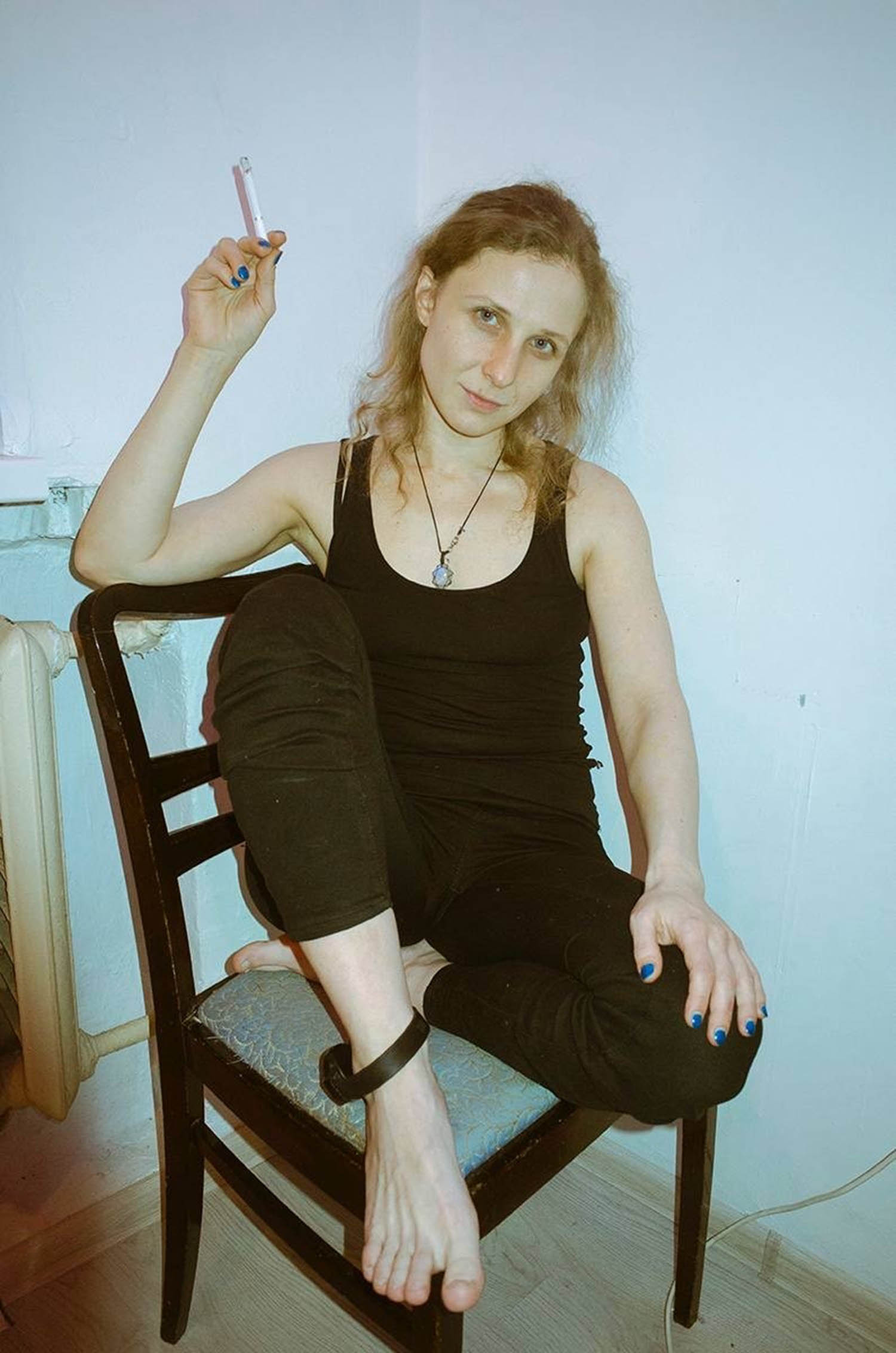
Alyokhina while under house arrest in Russia, pictured with her ankle tag.
Alyokhina’s relationships are dramas in themselves; happenings. She persuades Dima, an Orthodox conservative boyfriend, to read scripture in fishnets. Later comes Lucy Shtein, fellow activist and co-conspirator, who is straight until she meets Alyokhina. Their love is tempestuous, funny, possessive. They cut off ankle tags (fitted by police as a condition of house arrest), and arrange to meet in the basements of medical centres. This love clarifies Alyokhina’s politics, framing dissent not merely as a means of political change, but as a way of making a life.
It is a ledger of days. Courtrooms. Police hands on shoulders. Love found and defended, then split by borders
It is a ledger of days. Courtrooms. Police hands on shoulders. Love found and defended, then split by borders
The tone shifts as the history plays out. Early on, Alyokhina allows herself operatic flourishes: “All Russian grief accumulates in a heap and becomes my life that winter.” Later, the sentences become more steady: “We don’t choose the colour of our passport. But we do choose how to live our lives.” After February 2022 and the Russian invasion of Ukraine, all pretence ends. Poems are suppressed. Placards become criminal. A single letter, Z, becomes a militarist symbol, licensed to do enormous work. Arrests turn pre-emptive. Under house arrest, separated from Shtein, Alyokhina plans a departure that reads like a heist.
The title’s echo of the great Vasily Grossman is deliberate. Life and Fate is the 20th-century Russian novel about how systems digest people. Alyokhina doesn’t offer us Grossman’s grand panoramic vision of Russia. If he shows the power station, she gives us the fuse box: the forms; the bored clerk with veto power; the off-duty cops, some vicious, some sympathetic. She shows how years of small humiliations aggregate into a doctrine.
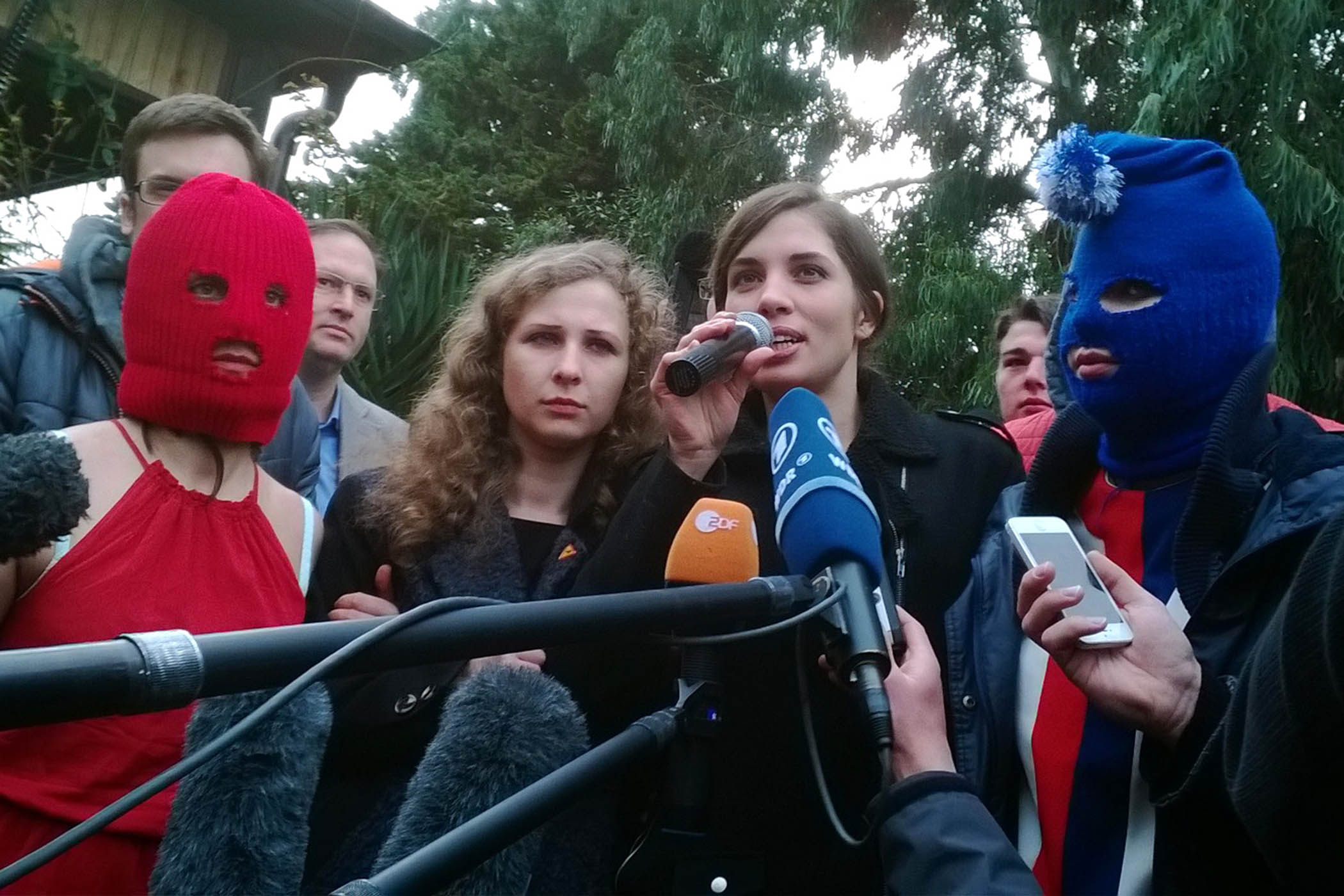
Alyokhina with Nadya Tolokonnikova and fellow Pussy Riot members during the Winter Olympics in Sochi, February 2014.
There is a snag, and it is linguistic. The English edition credits a translator, Emily Eccles, about whom nothing seems publicly verifiable. More telling is how the prose often feels less translated than transliterated: Russian syntax carried across one-to-one, verbs drilled in the present, idioms short of air. A skilled translator reshapes the Russian historical present for English rhythms: here the present holds its formation, page after page, and it makes for an occasionally overwrought and febrile reading experience. Alyokhina wrote Riot Days without a translator, and if the prose was sometimes raw, it at least felt alive. It feels here that there has been an attempt at maintaining both a Nabokovian fidelity to the original Russian, and the propulsive but ungainly English of Alyokhina’s second-language phrasing.
But this is a great and necessary book. Alyokhina is superb on the choreography of protest: turning a square into a stage; a banner into a camera magnet; a uniform into a joke. She is better still on attrition, the stamina it takes to keep showing up when the system’s aim is to make persistence feel childish. If the subtitle, Life and Fate in Russia, sounds grand, the book earns it by staying small. It is a ledger of days. Courtrooms. Buses. Doorways. Police hands on shoulders. Eyes rinsed with saline. Phones seized, accounts locked. Love found and defended, then split by borders. The state wants to make cogs of people; Political Girl answers with bodies, art, and the stubborn resistance of individual acts. Alyokhina’s book shows how repression actually moves through a country and a life. And it leaves us with a profound truth. Bravery is not noise or pose, but repetition.
Political Girl: Life and Fate in Russia by Maria Alyokhina with Olga Borisova, translated by Emily Eccles, is published by Allen Lane (£25). Order a copy from The Observer Shop for £21.25 Delivery charges may apply
Editor’s note: our recommendations are chosen independently by our journalists. The Observer may earn a small commission if a reader clicks a link and purchases a recommended product. This revenue helps support Observer journalism
Newsletters
Choose the newsletters you want to receive
View more
For information about how The Observer protects your data, read our Privacy Policy
Photography by Roberto Ricciuti/Redferns, Reuben Easey/AFP via Getty Images
